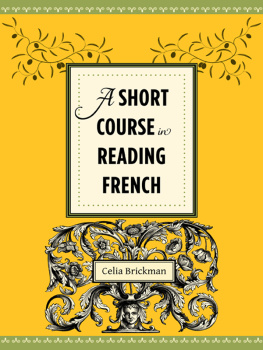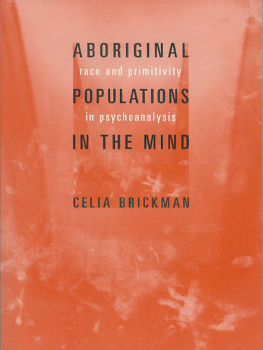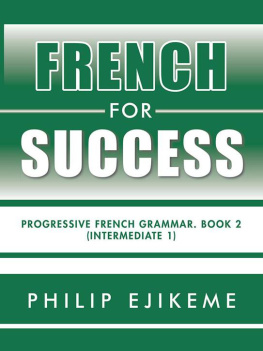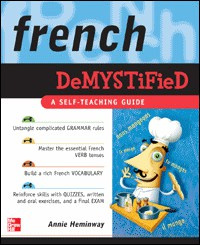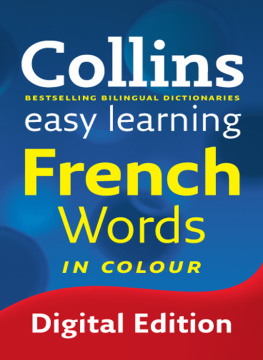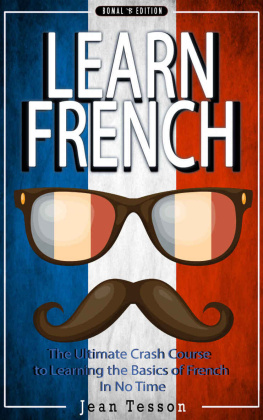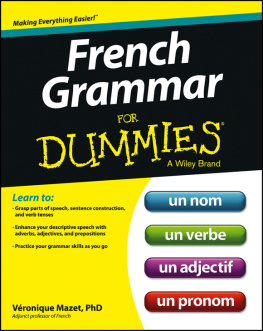A SHORT COURSE IN READING FRENCH
COLUMBIA UNIVERSITY PRESS NEW YORK

Columbia University Press
Publishers Since 1893
New York Chichester, West Sussex
cup.columbia.edu
Copyright 2013 Celia Brickman
All rights reserved
E-ISBN 978-0-231-52745-3
Library of Congress Cataloging-in-Publication Data
Brickman, Celia.
A short course in reading French / Celia Brickman.
p. cm.
Includes bibliographical references and index.
ISBN 978-0-231-15676-9 (cl : alk. paper) -- ISBN 978-0-231-15677-6 (ppr : alk. paper) -- ISBN 978-0-231-52745-3 (ebook)
1. French language--Readers. 2. French language--Textbooks for foreign speakers--English. I. Title.
PC2117.B847 2012
448.2421--dc23
2012029194
A Columbia University Press E-book.
CUP would be pleased to hear about your reading experience with this e-book at .
Cover image: (bottom) Lynea/Shutterstock Images
Cover design: Lisa Hamm
References to Internet Web sites (URLs) were accurate at the time of writing. Neither the author nor Columbia University Press is responsible for URLs that may have expired or changed since the manuscript was prepared.
For My Mother:
Helen Dorothy Friedman Brickman
September 1916December 2011
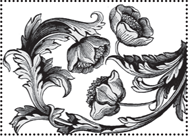
CONTENTS
FIRST AND FOREMOST, my thanks go to my many students over the years whose persistent questions have led me to refine my knowledge of French and develop clearer ways of explaining its grammar. I am grateful to an early anonymous reviewer who pointed to the need for sufficient translation practice: this prompted me to envisage an enlarged notion of what could be included for translation, thereby greatly improving the scope of the book. Others, in particular Jean-Michel Robert, were gracious in alerting me to omissions and errors; and several other anonymous readers made useful suggestions for which I am grateful, even if I was not able to incorporate every last one of them into the book. Thanks to Jeannette Darcy for compiling the first draft of the table of contents and to Gregory Freeman for the first round of copy-editing, as well as to Yves Alavo and Sam Shapiro for reading early drafts of the book. Thanks to my editors at Columbia University Press: to Jennifer Crewe and Peggy Garry for their assistance and perseverance, and to Ron Harris for his skillful and meticulous editing. Thanks also to David Tual of Durham University for his unflagging support over the time it took for this book to see the light of day. I am greatly indebted to Alain Epo (Paris), who reviewed all the exercises in the book for spelling, grammar, and syntax; and to Mathieu Jackson (Montreal), who also reviewed the entire text several times and whose etymological insights and overall enthusiasm for grammar were an inspiration and a delight. Both saved me from many errors that would otherwise have remained, as did my students who tirelessly discovered ever more typos as we tried out preliminary versions of the manuscript in my classes. Because of the expert and attentive work of these many readers, it is all the more important for me to offer the customary caveat that any errors that remain here are my own.
THIS BOOK IS a guide to learning French for reading and research and is intended for English speakers who want to learn to translate written French into English. It is a brief but accelerated exposition of the range of basic French grammar, which emerged from a course designed for graduate students learning French for academic research. As such, although it can be used on its own by anyone wanting a clear guide to French grammar, its primary purpose is as a textbook for classroom use. Therefore it assumes the use of a dictionary as well as the assistance of a teacher or tutor.
Unlike many French textbooks, this one will not help you to speak French. If you want to learn to speak French and/or to visit a French-speaking country or area (not only France, but Quebec, the Caribbean, and many parts of Africa and Asia), you should take a separate course in French conversation in addition to completing this one. However, this book will provide a solid introduction to French grammar that can serve as a foundation for reading and speaking French.
The main difficulty in learning any language is in retaining what has been learned. Practice and memorization are key to language retention. Therefore, each element of grammar presented here is followed by an exercise that provides the opportunity to learn and retain it by practicing. Vocabulary lists are not presented; but when it is suggested that something be memorized (e.g., all tense endings), this means that the memorization is essential to build the basic grammatical framework youll need at all times while translating. Rereading each chapter a few times will also help you retain what you have learned; and doing some French work each day is much more effective for retention than working long hours every once in a while. In addition, after the first few chapters, short translation passages of increasing difficulty have been included so that various elements of grammar can be practiced and the reader can become acquainted with the complexities that reading French presents. The final chapter consists of extra translation passages. These can be used for more practice throughout the course or at its end. I have not provided an answer key for the exercises and translation passages, because a ready set of answers creates an overwhelming temptation to skip the work of figuring out a translation on your own using the explanations of grammar presented in the book. The work of figuring it out on your own will allow you to learn and retain (rather than simply to understand and then forget) the grammar presented here. In classroom use, students difficulties and errors in assigned translation exercises and passages, which would not show up if an answer key were provided, provide indispensable opportunities for clarifying various grammatical issues and for discussing translation strategies, as well as for assessing where more attention and practice may be needed.
The translation passages have other purposes as well. Although I hope this book will prove useful to a variety of people who want to learn French, its primary audiencegraduate students and academics in the social sciences and humanitieswill simultaneously be studying the scholarship written in French that is pertinent to their own fields. Therefore, the translation passages have been selected from a variety of prominent French theoretical, historical, and literary sources, classical and contemporary, in order to encourage students to develop the confidence that they too can translate such works. In addition, translation passages from distinguished francophone authors from around the world are included, so that this book may serve as an introduction to French as the global language it actually is rather than solely the national language of France, as has so often been presumed. I have included short notes of introduction for authors who may not be well known to the majority of anglophone students, but, for the sake of brevity, have not provided notes for authors familiar to most readers.
This book is based on a course Ive been teaching over many years, during most of which time I used Edward Stacks Reading French in the Arts and Sciences (Houghton Mifflin, 1987, 4th edition) as the main textbook. A few years ago, Stacks book went out of print, which provided me with the incentive to write this one. Because I used his book for the first part of my course for many years, its influence can be seen throughout the book I have written. Thus I owe a great debt of gratitude to Mr. Stack for some of the ways in which the grammar is presented here, and for the patterns of some of my exercises.
Next page
